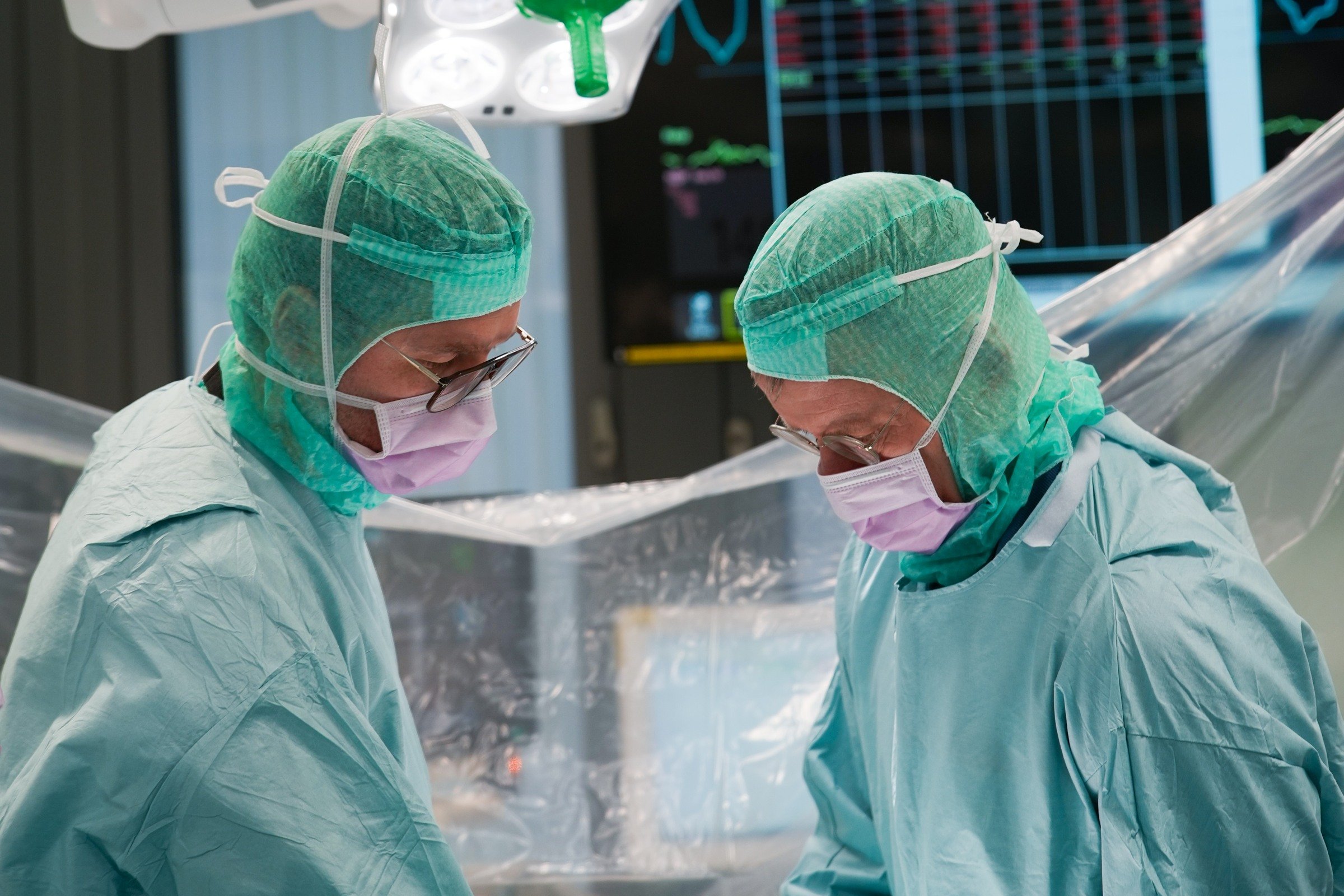Karolinska First in Europe to Perform Surgery with New Robotic Technology

The robot, which has previously been used in the USA, was recently approved for the European market. And now, the first operation in Europe using this robot has been performed at Karolinska University Hospital.
According to Olof Akre, Professor of Oncological Surgery and Head of Department of Clinical Cancer Studies at Karolinska, there are two reasons why Karolinska became the first hospital in Europe to perform surgery with this robot.
"The first reason is that it's our mission to be involved in the development of cancer surgery. When new equipment that offers new possibilities comes along, we should be there to develop them. We need to identify its strengths as well as its limitations. The strengths should be utilized for the benefit of our patients," says Olof Akre.
The second reason concerns organizational aspects. Acquiring a new surgical robot requires the engagement of staff from many different parts of the hospital.
"It involves perioperative and intensive care, sterile processing, hospital management, and others. We all need to work towards the same goal, and that's exactly what we've done here. That's why we were able to be the first to perform surgery after the robot was CE marked for Europe," Akre explains.
One of the major advantages of the new single-port robot compared to the older multi-port model is how the surgeon accesses the surgical area. With the new robot, the surgeon can insert all instruments through the same opening. This enables surgeries that were previously considered too risky.
The robot costs just over 20 million SEK (Swedish kronor) and requires many hours of training. In the long run, Olof Akre is confident that this is an investment that will be greatly beneficial for both patients and taxpayers.
"For some patients, this will make a tremendous difference. It will reduce the size of the surgery they need to undergo, how much suffering they will experience, and save hospital days," says Akre.
> Click to see the video where Olof Akre explains more.
Swedish and english subtitles are provided.